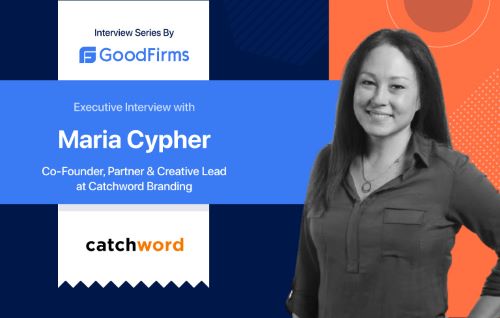SAN FRANCISCO — Even if you could say Abazab or Eefoof without snickering, would you want to do business with them?
Would you feel OK owning Wakoopa shares in your 401(k)? Telling potential in-laws you met on Frengo? Relying on Ooma to call Grandma?
Silicon Valley is in the midst of a great corporate baby boom. Venture capitalists have pumped $2.5 billion into 400 young Internet companies since the beginning of 2006, compared with $1.3 billion into 236 companies during the previous two years, according to research firm Dow Jones VentureOne.
These entrepreneurial brain children have short life expectancies, destined to fight for revenue with the likes of Google, Yahoo and EBay. But still they are being born — and they need names.
Naming a company is far more difficult than naming a child. The name needs to sound snappy, separate its young company from the pack and provide a unique Web address.
Having two Ethans and three Madisons in a kindergarten class can create confusion, even embarrassment, but giving your start-up a name that’s already taken guarantees a legal fight you can’t win.
The result? New Internet companies are being baptized daily with handles that sound like a cross between toddler-speak, scat singing and what the aliens will greet us with when they land.
You won’t find a name among the horde that conjures up traditional companies such as Dress Barn, Best Buy and Burger King. Most Internet company names make little sense, and they roll around the mouth like a marble.
“Old-school ideas about sounding trustworthy or sounding big are not as important as they used to be,” said Burt Alper, co-founder of Catchword Branding in Oakland, which has helped companies pick such names as Vudu (makes a device for watching videos) and Promptu (creates voice-recognition products). “Now, it’s about sounding different and standing out from the crowd.”
Like naming a new baby, the process involves late-night brainstorming, some expert help and a dose of frank feedback from friends.
And like the grandparents-to-be, a company’s financial backers can kill a loved name with a raised eyebrow. Picking the wrong name can kill a multimillion-dollar investment.
Entrepreneurs today pick names they think will help their companies stand out, as do parents of little Zander and Arlo, Eliza and Matilda.
“Naming a company is like naming a celebrity,” said serial entrepreneur Jared Kopf, who has helped christen companies including Adroll.com, his online advertising firm, and Slide, a Web photo service. “Made-up words don’t come with psychological baggage.”
One approach is whimsy: picking a name that seems inspired by Dr. Seuss. If the late author were to tell a story about Internet start-ups, he could pit Qumana and Qoosa (blog editing and Web browsing) against Tagtooga and Tendango (both social networking). Peace would be brokered by Ooma (Internet phone calling). BooRah (restaurant reviews) would hiss, then cheer. Lala (music sharing) would sing.
Call it the Google effect. Thanks to the successful Internet search company with the goofy name, entrepreneurs feel no shame telling people they work for ItzBig (career networking) or asking venture capitalists to invest millions of dollars in Picaboo (a website for ordering custom photo books). Who needs the gravitas of an International Business Machines or a General Electric?
Many names come with little context. Firms such as Xobni, Meebo and Squidoo give no hint of what they might do (e-mail management, instant messaging and online recommendations, respectively). Entrepreneurs say having to explain their mission provides a marketing opportunity.
But naming experts say the current crop of Internet companies is in danger of overwhelming customers. Not many will bother to commit it to memory that Imeem is a social network for sharing music and videos or that Imbee is a social network for kids.
“Now, it’s almost like fashion styles, all these vowels and unpronounceable made-up names,” said Steve Manning, managing director of Igor, a naming company in San Francisco. “You cannot possibly remember one from another.”
Some corporate namers seek a feeling of familiarity by evoking the Internet’s biggest success stories.
Elad Hemar, co-founder and chief executive of Yoomba, an e-mail service, said the name was chosen because it echoes the double O in Google and suggests that the service is about “you.” It joins other double-O entries such as Oodle, Renkoo, Kaboodle and Wakoopa, to name only a few.
Naming your company after a mainstay such as Google provides “linguistic comfort,” said Anthony Shore, global director of naming and writing at Landor Associates. But “when everyone apes a name, everyone loses.”
Twitter, which lets users broadcast short bloglike pronouncements via text message, instant message or e-mail, sought inspiration in nature.
“Every time I listen to birds, I get a sense of that short burst of information,” Twitter co-founder Biz Stone said.
With his second company, Ariel Maislos didn’t want to repeat the problem he faced with his first, Passave Technologies. It was the Hebrew word for “broadband,” which is what the chips the company made were designed to improve. But people complained they couldn’t spell or say the name, pronounced Pa-SAH-vay.
So his new company, described so far as producing “a breakthrough technology that makes your phone conversations interesting,” is as simple as a kid’s lunchbox snack. It’s called the Pudding.
“Everyone likes pudding,” Maislos said.
Google too may have sounded silly in its early days, but the name developed a pedigree through good products, Twitter’s Stone said. “If these things are around long enough, the name grows up,” he said.
Internet entrepreneurs say the desperation to be unique is compounded by the need to simply own an Internet site.
Like Manhattan real estate, almost every conceivable, recognizable domain name has been scooped up in the hope that they’ll be resold for big money. In two extreme examples, the rights to creditcheck.com recently sold for $3 million, and porn.com went for $9.5 million.
Internet companies have come up with tricks to capture Internet addresses, such as rejiggering the spelling of regular words: Drop a letter to make Flickr or insert odd punctuation, like Ma.gnolia and Del.icio.us.
And if the name doesn’t catch on? This generation of Internet companies so embraces change — “Internet time” is to regular time like dog years are to human years — that it is not averse to changing identity if the name or business model don’t work out. Riya became Like. Eefoof has been reborn as VuMe.
Name remorse is not uncommon. A few months ago, Bijan Marashi began to wonder if he had erred in giving his San Francisco start-up a name that loosely rhymed with “stupid.”
Xoopit (pronounced ZOO-pit) was a riff on the word “soup,” but it proved tricky to pronounce and for some, baffling to spell.
Then there was the typical parental fear: Would rival start-ups — the bullies of the Internet playground — call it “stupid” or make off-color jokes about a zoo pit?
Could Xoopit, which has yet to launch its service but promises to rethink how we organize e-mail, grow into a serious company with such a name?
Concerns were so great that a venture capitalist who considered investing in Marashi’s business said he wouldn’t do so unless the name was changed.
Marashi suggested Phr332 (pronounced like Freak), but that was quickly shot down. So was Flume.
So Marashi conducted market research. He approached 10 strangers in various San Francisco neighborhoods and asked them to read the name “Xoopit” aloud. Most could. He reported his findings to the start-up’s eight employees and sought the advice of friends and family.
Marketing experts assured him that X was the new Z.
In July, Xoopit decided to stay Xoopit. The company plans to embrace it in a marketing slogan that, using Xoopit as a verb, suggests its users will become smarter: “Don’t be stupid. Xoopit.”
“Once you pick a name, you have to stand by it,” Marashi said. “The baby is born and you have to sign the birth certificate.”
SAN FRANCISCO — Even if you could say Abazab or Eefoof without snickering, would you want to do business with them?…






